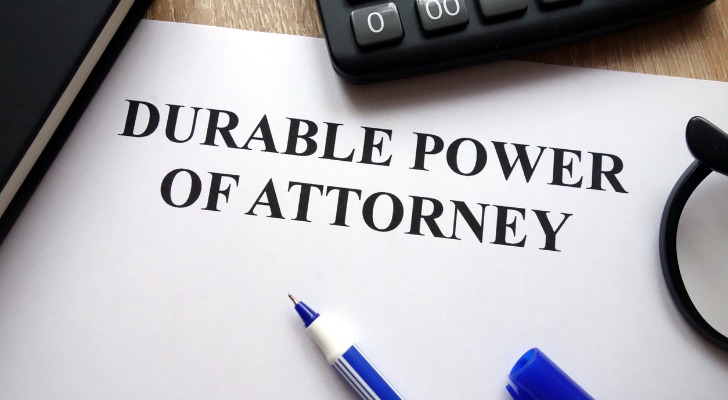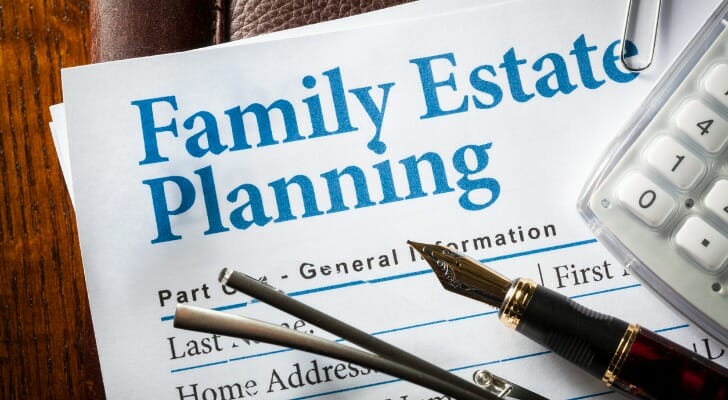Both power of attorney and guardianship are forms of fiduciary relationships in which one person acts on behalf of another. They are tools you can use to name somebody who can act for you if you become incapacitated or unable to make financial decisions in particular. Circumstances will vary based on your personal financial situation, which is why it could be helpful to speak one-on-one with a professional financial advisor, but it’s always a good idea to start by getting a lay of the land.
In general, there are certain documents that someone might create ahead of time in order to name another person in charge of their affairs should they become unable to take care of things on their own. These include a power of attorney (often used for financial matters) and an advance healthcare directive (often used for medical decisions). If someone becomes incapacitated but did not prepare these kinds of documents beforehand, a family member would have to seek support via guardianship by means of court approval.
Power of Attorney Defined
A power of attorney (POA) is a written document that authorizes another person to act in an individual’s place. The individual must have legal capacity when they sign it and have to be able to understand that they’re giving up the power to make certain decisions to this other person. A durable power of attorney permits another person to act or an individual even if the individual loses the ability to understand the purpose of the durable POA. Durable power of attorney can be used for financial or healthcare decisions. These documents should be drafted by a lawyer or someone familiar with the laws surrounding them.
Guardianship Defined
Guardianship refers to a guardian or person appointed by the court to make personal decisions for another individual. Once the guardian is chosen, the individual becomes a protected person, or ward, of that person, and loses many rights that they would have had otherwise. This is why a guardianship should usually be one of the final approaches someone should consider in these matters, for when a power of attorney is not feasible or attainable. The court must find that the individual is incapacitated based on evidence, and only then will a guardian be appointed.
Unless limited by the court, the guardian has the same rights, powers and duties over his ward as parents have over their minor children. Guardianship and power of attorney are both different from a conservator, who receives through probate court the ability to make decisions related to the financial situation and property of the ward. This actually may be the same person as the guardian.
Power of Attorney vs. Guardianship: Differences

These two kinds of documents differ in various respects:
- Scope and timing. Powers of attorney are usually done to prepare ahead of time. As such, you could generally avoid the guardianship process altogether by naming someone to handle your affairs should you become incapable. When it comes to scope, powers of attorney may be limited to a very specific transaction, or may extend to full power over all affairs. Guardianship is usually always more holistic.
- Control. Durable power of attorney allows the principal to select what level of authority the agent has. Guardianship means that the court judge chooses or makes the appointment and the level of authority the guardian has. It may even be the case that a judge appoints an independent professional like an attorney as a guardian, which means that someone you don’t actually know could eventually be in charge of making financial decisions for you. One other important distinction is that you may also revoke the power of attorney at any time, as long as you have the mental capacity to do so. Generally, you should use a power of attorney if the individual still has the ability to understand and make decisions and has someone to support them in doing so. Powers of attorney generally allow individuals to keep more decision making power. A guardianship introduces many more limits on the individual’s ability to decide for themselves and should usually be used when they are absolutely unable to.
- Cost. Guardianship costs are relatively expensive and time-consuming. They can take several months to fully finalize, require in-depth medical examination and testimony about the competence (or lack thereof) of the individual. A durable power of attorney takes much longer and is done for much less.
- Oversight. Usually there is no court oversight of a durable power of attorney agent. There can be a significant court oversight for a guardianship, however, which can also add to the expenses mentioned above.
Bottom Line

Both a power of attorney and a guardianship are relationships in which a person is given the power to make certain decisions (financial or personal) on behalf of another individual. Sometimes this is due to the principal person’s inability to make their own decisions. It’s important to think about these situations while one is still of sound mind, so that they can think through various scenarios and consequences and make the right choice for themselves and their loved ones.
Tips for Estate Planning
- Determining your overall estate planning needs is an important step to make sure that your financial affairs are in order, especially if something happens to you and you aren’t able to make your own decisions. Use our comprehensive estate planning guide to understand all of the components of estate planning.
- It’s never too late to start building an emergency fund – even retirees need one. Use our free budget calculator and savings account reviews to help allocate and set one up for yourself.
- Seek out professional financial advice. You wouldn’t run a marathon without a trainer, would you? So why not apply the same logic to your long-term money goals? Finding a financial advisor doesn’t have to be hard. SmartAsset’s free tool matches you with up to three financial advisors in your area, and you can interview your advisor matches at no cost to decide which one is right for you. If you’re ready to find an advisor who can help you achieve your financial goals, get started now.
Photo credit: ©iStock.com/djedzura, ©iStock.com/Piotrekswat, ©iStock.com/Bill Oxford
